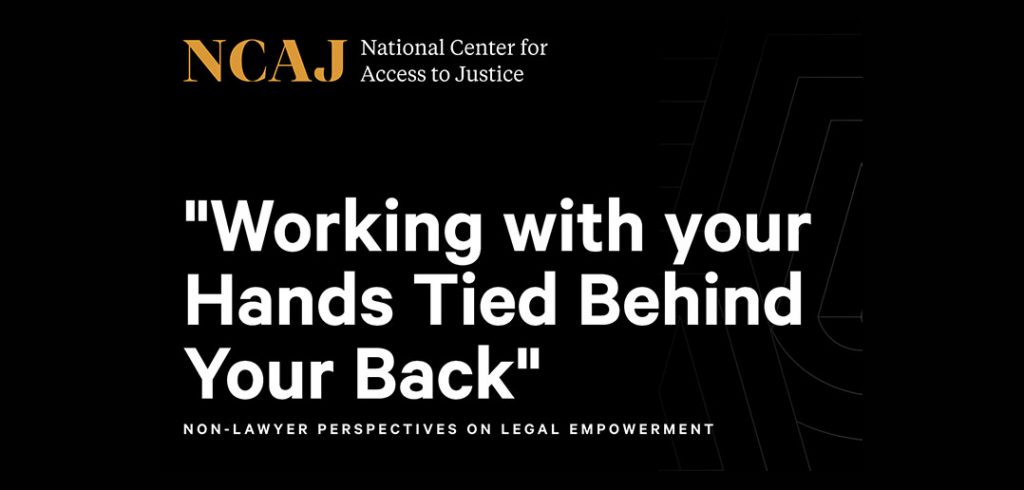In early June, the National Center for Access to Justice (NCAJ), based at Fordham Law School, released its latest report, “Working with Your Hands Tied Behind Your Back: Non-lawyer Perspectives on Legal Empowerment.”
The report, made possible by funding from the Open Society Foundations, explores the current debate on whether and how the unauthorized practice of law rules should be changed to enable more people with otherwise unmet legal needs to obtain the legal assistance they seek.
“One main goal of the report was to draw out lots of interesting and sharp perspectives on the kinds of change that would be useful and the good that could come of it—going beyond ideas that tend to surface amongst lawyers,” said NACJ Legal and Policy Director Chris Albin-Lackey, who led the research project and developed the report. “The other main goal was to emphasize that, as states are weighing how and whether to loosen regulations around the practice of law, they need to make those deliberations much more inclusive of non-lawyer perspectives.”
Over the last year, the NCAJ remotely interviewed more than 60 people—including librarians, legal document assistants, social workers, and tenant advocates—who work with those suffering for want of legal help on a daily basis. These professionals, community leaders, and activists often have a firsthand perspective on America’s access to justice crisis and the kind of change states should embrace to empower their residents to get the right kind of help, according to Albin-Lackey.
“States really need to be including these kinds of perspectives at center stage instead of treating this like a debate that can be had just within the legal profession,” Albin-Lackey continued, “because it can’t.”
NCAJ argues that while we need to greatly expand access to legal representation, it is not realistic to believe everyone in America will be able to have access to a lawyer who can help with every legal problem. “So, part of the answer has to be thinking about how people—other than J.D.s—could help bridge that gap,” Albin-Lackey said. “That could mean doing more to give people legal advice or help people in more involved ways dealing with their legal problems.”
Examples include having a non-lawyer present in the courtroom to support the client or available to help the client fill out legal documents. This, as Albin-Lackey noted, may require additional training—but also an expanded degree of freedom to put that training to use.
In conclusion, NCAJ recognizes there is no one-size-fits-all solution because people face a diverse array of problems that require different kinds of legal services. “The key is to create the possibility for lots of different, new models and service delivery to emerge that can meet different kinds of people where they are,” Albin-Lackey said, “while also protecting consumers from harm, with the right kind of regulation.”

